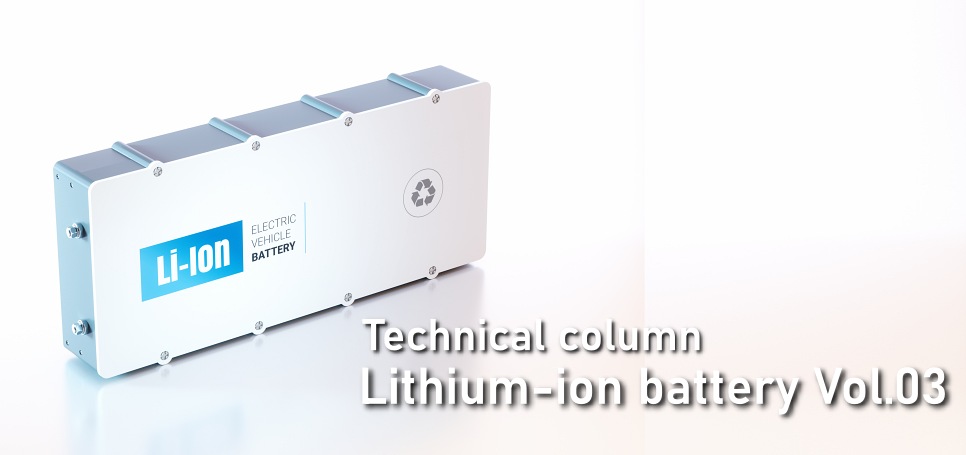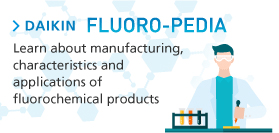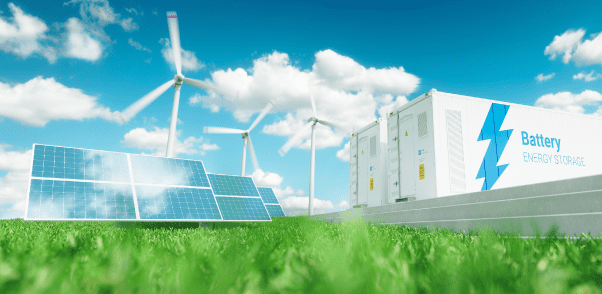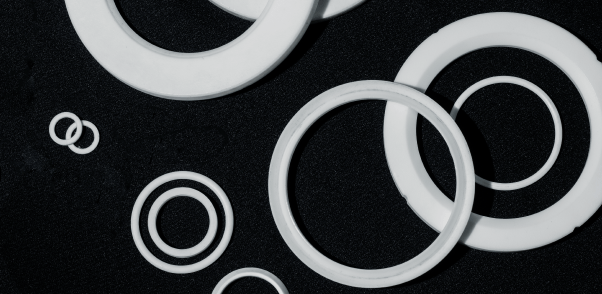Battery materials
Daikin has developed to market innovative solutions to improve life cycle, safe, and high efficiency of lithium primary battery and lithium-ion battery.
DESCRIPTION
The fluoromaterials are used in lithium-ion batteries, and high-performance materials are increasingly required to meet the needs for high capacity, improved safety, and long life. Daikin has developed various fluoromaterials for lithium-ion batteries. We are also focusing on the development of next-generation batteries, contributing to next-generation lithium-ion batteries and all-solid-state batteries.
SOLUTIONS & FEATURES

| APPLICATIONS | SOLUTIONS | FEATURES |
|---|---|---|
| 1. Gasket materials | NEOFLON PFA |
Long-term reliability Chemical resistance |
| 2. Cathode binder |
NEOFLON VT-475 |
High-capacity
Flexibility |
| 3. Cathode binder with SWCNT |
NEOFLON VTD-475N |
High adhesion
Low resistance |
| 4. Cathode binder for dry process | POLYFLON BDP |
Eco-friendly Cost down |
| 5. Electrolyte additives and solvents | Fluoro ether |
High power High voltage Gas suppression Non-flammable |
1. Gasket materials - Fluoropolymer NEOFLON PFA
NEOFLON PFA is the best suited gasket material for long term use in lithium-ion batteries due to the excellent sealing performance, electrolyte resistance, and moisture barrier.
Comparison of recovery rates

Swelling test in electrolyte

Moisture permeation

2. Cathode binder - Fluoropolymer NEOFLON VT-475
NEOFLON VT-475 is an additive of PVdF binder for lithium-ion battery and it contributes to high energy density electrode for a new lithium-ion battery design.
NEOFLON VT-475 improves fluidity decrease of the slurry at coating process. Especially high nickel-based active materials such as NMC811 and NCA, NEOFLON VT-475 added PVdF shows significant improvement at coating process.
NEOFLON VT-475 binder produces high density (higher than 3.6 g/cc) and thick electrodes (higher than 30 mg/cm2) with no cracking up winding. It enables high energy density electrodes.
Slurry stability

Flexibility

3. Cathode binder with SWCNT - NEOFLON VTD-475N (under development)
NEOFLON VTD-475N is a NMP dispersion which includes NEOFLON VT-475 and TUBALL TM.
It can increase the electric conductivity with small dosage of CNT, and then, increase the energy density.
NEOFLON VT-475
- - Increase the energy density
- - Flexibility
- - Slurry stability
SWCNT (TUBALL TM)
- - Higher adhesion
- - Higher electric conductivity
- - Increase the energy density (higher active material amount)
Cathode formulation example
[Conventional] Active material / CB / Binder = 97 / 1.5 / 1.5 (wt%)
[New] Active material TUBALL ™ / CB / Binder
= 98.52 / 0.08 / 0.4 / 1.0(wt%)
*TUBALL TM is a resistered trademark of OCSiAl S.A.
Cathode SEM image of NEOFLON VTD-475N
(VT-475 with TUBALL TM)

4. Cathode binder for dry process - POLYFLON BDP
Current wet process for making the cathode needs to make the slurry and heat-up. If the dry process is applied, it’s cost effective and eco-friendly because of NMP free.
POLYFLON BDP binder is suitable for this dry process of conventional lithium-ion battery as well as all-solid-state battery.


5. Fluoro ether for electrolyte additives (under development)
Daikin fluoro ether has excellent oxidation resistance and no flash point. The electrolyte with fluoro ether can improve the battery performance for Si anode.
Excellent oxidation resistance and safety performance
Daikin fluoro ether gives higher oxidation resistance to electrolyte.
It also has no flash point, therefore it can increase the electrolyte flash point.
Excellent cycle life
It significantly improves the capacity reduction caused by the Si anode expansion and contraction, which is the same improvement effect as FEC.
Suppression of resistance increase
By suppressing the decomposition of the electrolyte, it can suppress the resistance increase.
Suppression of gas generation
It has outstanding stable chemical stability compared to FEC which is a commonly used as anode additive.
It can reduce the gas generation while FEC generates decarboxylation gas.
Cycle performance

Gas generation

ARTICLES

Serial column
06/2023
[Battery materials] Vol.3 Dry process for lithium-ion batteries
A topic that is getting people in the industry talking these days is dry processes. Dry processes refer to methods which do not involve the usage of solvents or water when it comes to the fabrication of electrodes for lithium-ion batteries. The following is a simple explanation of why dry processes are the subject of anticipation right now, the technologies required to implement them, and environments related to these processes.

Serial column
10/2022
[Battery materials] Vol.2 Binder for lithium-ion batteries
The market trends and development movements of battery materials are featured by Takanori Suzuki, who has been engaged in the development of lithium-ion battery materials for many years and is currently a consultant for battery materials at Suzuki Material Technology and Consulting Co., Ltd. The theme of the second column of the series is “Binder for lithium-ion batteries.”

Serial column
08/2022
[Battery materials] Vol.1 Lithium-ion batteries and fluoromaterials
The market trends and development movements of battery materials are featured by Takanori Suzuki, who has been engaged in the development of lithium-ion battery materials for many years and is currently a consultant for battery materials at Suzuki Material Technology and Consulting Co., Ltd. The theme of the first column of the series is “Lithium-ion batteries and fluoromaterials.”








